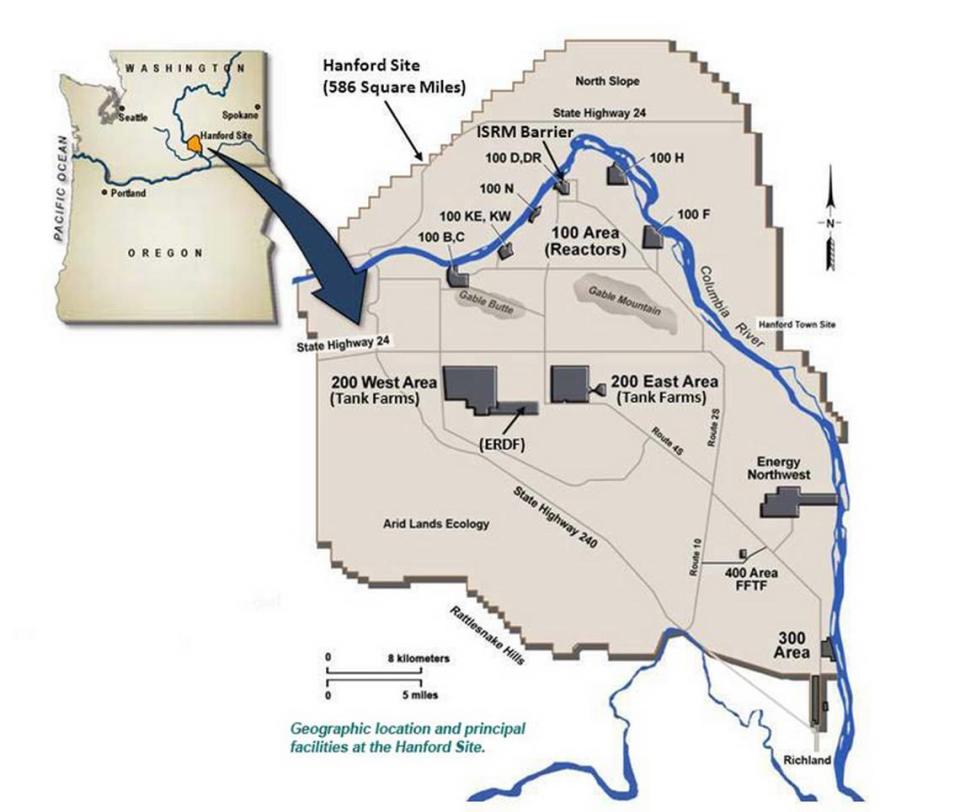Hanford workers take fight against COVID vaccine to 9th Circuit Court of Appeals
About 300 Hanford site workers have asked the 9th Circuit Court of Appeals to overturn a federal court ruling that dismissed their lawsuit over COVID-19 vaccine requirements.
Last month U.S. Judge Thomas Rice found that attorneys for the Hanford workers had not provided clear arguments nor specific information about most workers to make their case.
Plaintiffs have until Sept. 22 to file their opening brief, and an answer to that is due Oct. 24 from the federal government on behalf of President Biden, Energy Secretary Jennifer Granholm and Brian Vance, the Hanford Department of Energy manager.
With the original complaint already amended once, Rice had no confidence that plaintiff attorneys could file another amended complaint to addressed their “continued failures to address the shortcomings in their various pleadings,” he said in his order dismissing the case.
The case was argued by Nathan Arnold of Seattle and Pete Serrano, a Pasco city councilman and director and attorney for the Silent Majority Foundation in Pasco, which organized the lawsuit.
The 9th Circuit Court of Appeals case lists Arnold as representing plaintiffs.
Rice of the U.S. Court Eastern Washington District had already refused to temporarily halt enforcement of the vaccine mandates while the lawsuit was argued before dismissing the case.
The judge said that 307 of the workers in the case had not shown they were harmed by the vaccine mandate or that a decision in their favor would redress any harm.

Many had not filed for religious or medical exemptions allowed by the mandates, Rice said. Others had filed but failed to provide information to the court on their exemption or vaccination status.
“Without knowing whether these plaintiffs are in compliance with the vaccination or exemption requirements, it is impossible to know whether they could face an adverse employment action,” Rice said.
Other plaintiffs in the case failed to say who employed them, giving them no standing in the case.
That left just seven plaintiffs in the case with possibly valid claims.
Constitution and vaccine mandates
Attorneys argued that COVID-19 vaccine mandates violated the U.S. Constitution.
But Rice found that “a closer examination of the claims reveals only broad recitations of various constitutional principles muddled with repetitive allegations that the executive orders were promulgated in excess of President Biden’s authority.”

Claims based on freedom of religion did not hold up because plaintiffs did not identify the religious activities they were engaged in or how those activities were substantially burdened by the executive orders, Rice said.
Rice also found that the vaccine mandates or a valid exemption were a requirement for employment, but no one had been forced to get a vaccine, he said.
The 580-square-mile Hanford nuclear reservation in Eastern Washington adjoining Richland was used from World War II through the Cold War to produce nearly two-thirds of the plutonium for the nation’s nuclear weapons program. Now about $2.5 billion annually is spent on environmental cleanup of the contaminated site.

